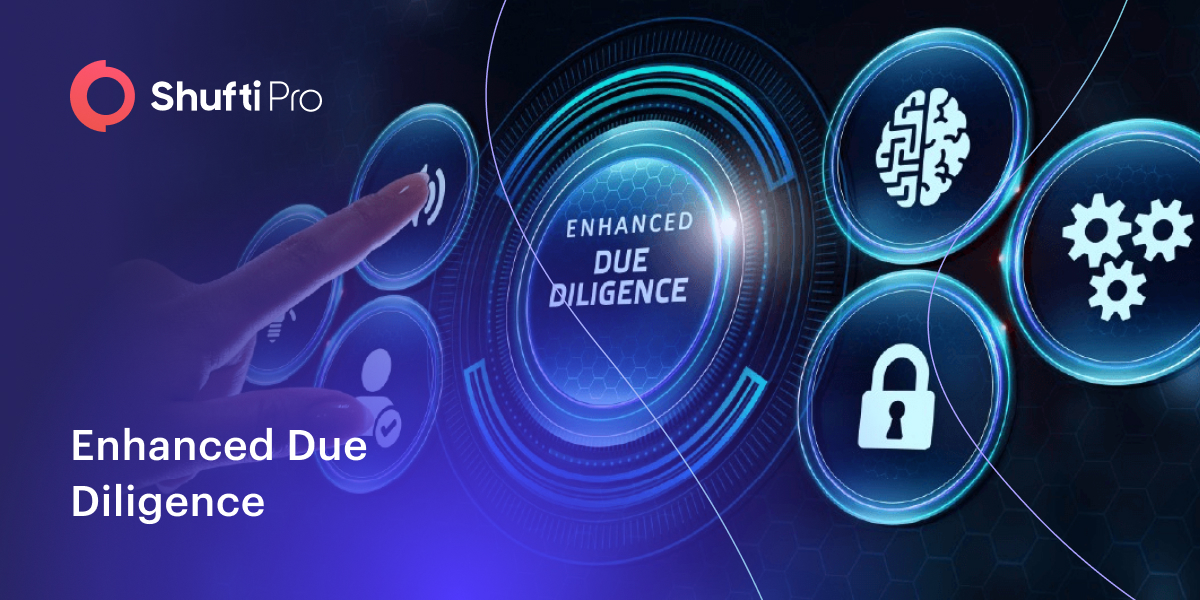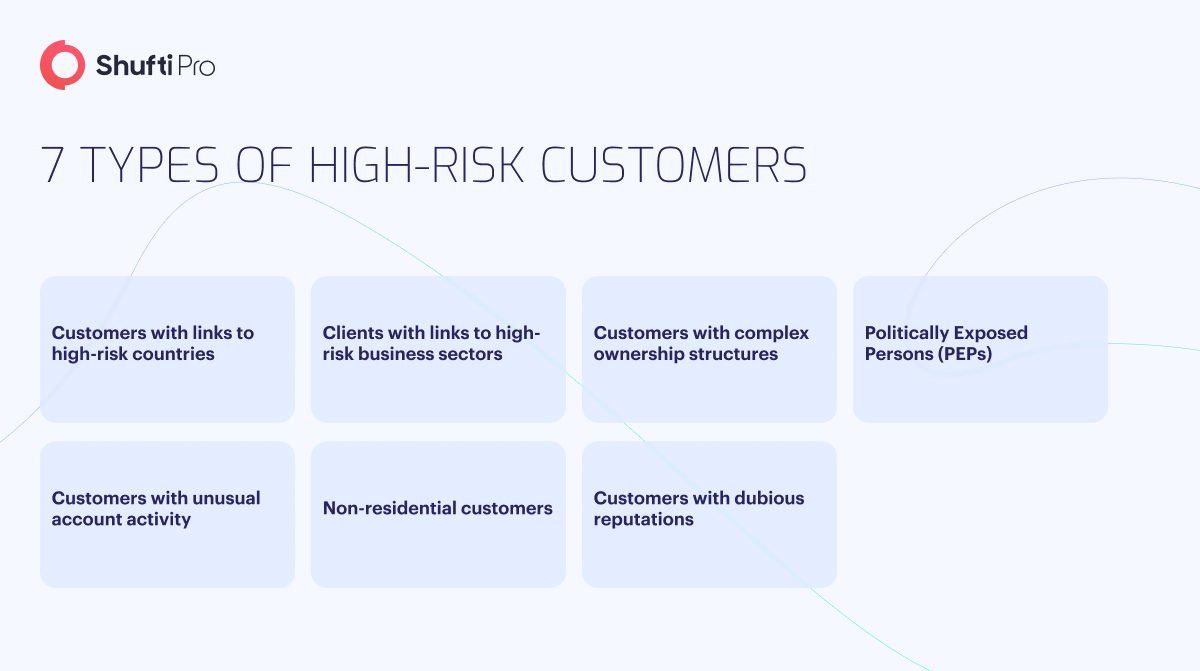Enhanced Due Diligence: Identifying High-Risk Customers in the Banking Sector

The digitisation of our world and economies have introduced greater ease and efficiency to our practices, but this is being met with more advanced attacks from criminals to bypass security solutions and carry out various financial crimes. Every year nearly $2 trillion of illicit cash flows through the international financial system, destroying the reputations of businesses. Customer Due Diligence (CDD) is no longer an option whilst encountering high-risk customers. This is where Enhanced Due Diligence (EDD) steps in.
Understanding Enhanced Due Diligence in Detail
EDD is designed to deal with high-risk clients and large transactions. As both pose a greater level of risk to banks and other financial firms, they’re heavily regulated to protect the sector from money laundering and other crimes.
Here is what distinguishes EDD from standard Know Your Customer (KYC):
- Rigorous and Robust: EDD policies require more detailed information than the standard regulatory requirements for customer identification. This is to establish the nature and purpose of the Ultimate Beneficial Owner (UBO) and business relationship.
- Reasonable Assurance: Enhanced due diligence should provide “reasonable assurance” when giving a risk rating to any customer.
- Calculating a Risk Rating: Investigators should perform the required checks and use their professional expertise to reach a final decision.
- Detailed Documentation: The EDD must be documented in detail how the data is obtained, and then the information sources are validated.
- Heavy Monitoring of PEPs: Politically Exposed Persons (PEPs) should be monitored thoroughly as they pose a higher risk for money laundering.

What is EDD Required for?
All members of the Financial Action Task Force (FATF) are obligated to satisfy CDD requirements as a part of their Anti Money Laundering (AML) and Countering Terrorism Financing (CTF) legislation.
Furthermore, FATF’s Recommendation 19 states that “EDD measures should be carried out on business relationships and transactions with natural and legal persons, and financial institutions, from countries for which this is called for by the FATF.”
Financial institutions must fulfil all CDD measures when establishing any business relationship and perform occasional transactions to mitigate the risk of money laundering, drug trafficking, terrorism financing, and other crimes. The financial sector must consider that they must monitor customers on an ongoing basis instead of performing checks at the time of onboarding.
Enhanced due diligence is required for the following:
- Establishing a business relationship in unusual circumstances, such as unknown geographic distance between the customer and the business
- Non-resident clients or those subject to monetary sanctions
- Legal persons or personal asset-holding arrangements
- Firms that have shares in bearer form
- Cash-intensive institutions
- The beneficial ownership framework of the firm sounds suspicious or excessively complex
- Countries or jurisdictions that lack adequate AML/CTF systems
- Countries subject to global sanctions or are known for significant levels of criminal activity
- Countries having terrorist organisations or funding terrorist activities
- Private banking
- Anonymous transactions or corporate relationships
- Payments received from any unknown or third party
- Politically Exposed Persons (PEPs)
FATF Best Practices for EDD
The Financial Action Task Force (FATF) has suggested the following steps for EDD.
- Obtaining detailed customer information from multiple sources and getting additional information from the client about the nature and purpose of the relationship
- Performing additional searches
- Verifying where the funds come from to ensure they’re not illegally acquired
- Demanding an intelligence report on the UBO or customer
Enhanced Due Diligence Requirements
- Customer due diligence requires banks and other businesses to keep a record of the customer data they obtained for a period of at least five years. The information includes copies of identity documents (birth certificate, passport, driving licence) and business documentation.
- Banks and other firms must provide all the records when the regulators and other authorities request to reconstruct transactions, including the details of the amount and the currency involved.
- If CDD measures flag any suspicious profile, firms must understand that it’s a red signal that the client is involved in any kind of criminal activity. Firms must promptly report that suspicious individual or transaction to the country’s Financial Intelligence Unit (FIU) through a Suspicious Activity Report (SAR).
- As regulatory requirements differ from country to country, firms must check their operating jurisdiction to satisfy compliance.
- Checking for adverse media whilst conducting enhanced due diligence can be a robust tool because it indicates a customer’s involvement with money laundering, drug trafficking, terrorism financing, or other criminal activity.
- Any business operating in high-risk countries in Europe is legally obligated to perform EDD under Article 18 of 4AMLD. In addition to this, any politically exposed person, their family members or close associates must also be checked thoroughly.
- In the US, customer due diligence will vary per the case involved.
All banks and other firms must stay updated on the ever-evolving AML regulations. They must perform an ongoing AML screening to ensure the clients are not on any sanction list, watchlist, or PEPs list. They must perform enhanced due diligence for high-risk customers to keep fraudsters at bay and prevent themselves from hefty non-compliance fines.
How Can Shufti Help?
Shufti offers an ongoing AML solution that screens your customers against 1700+ watchlists within seconds. The AML solution constantly monitors customers and mitigates the risk of fraudulent activities.
Here’s what makes our ongoing AML screening solution stand out:
- Additional identity assurance
- Enhanced compliance screening
- Accurate risk profiling
- Updated risk status
- Reduced cost of compliance
Still confused about how a robust AML screening solution work?

 Explore Now
Explore Now













